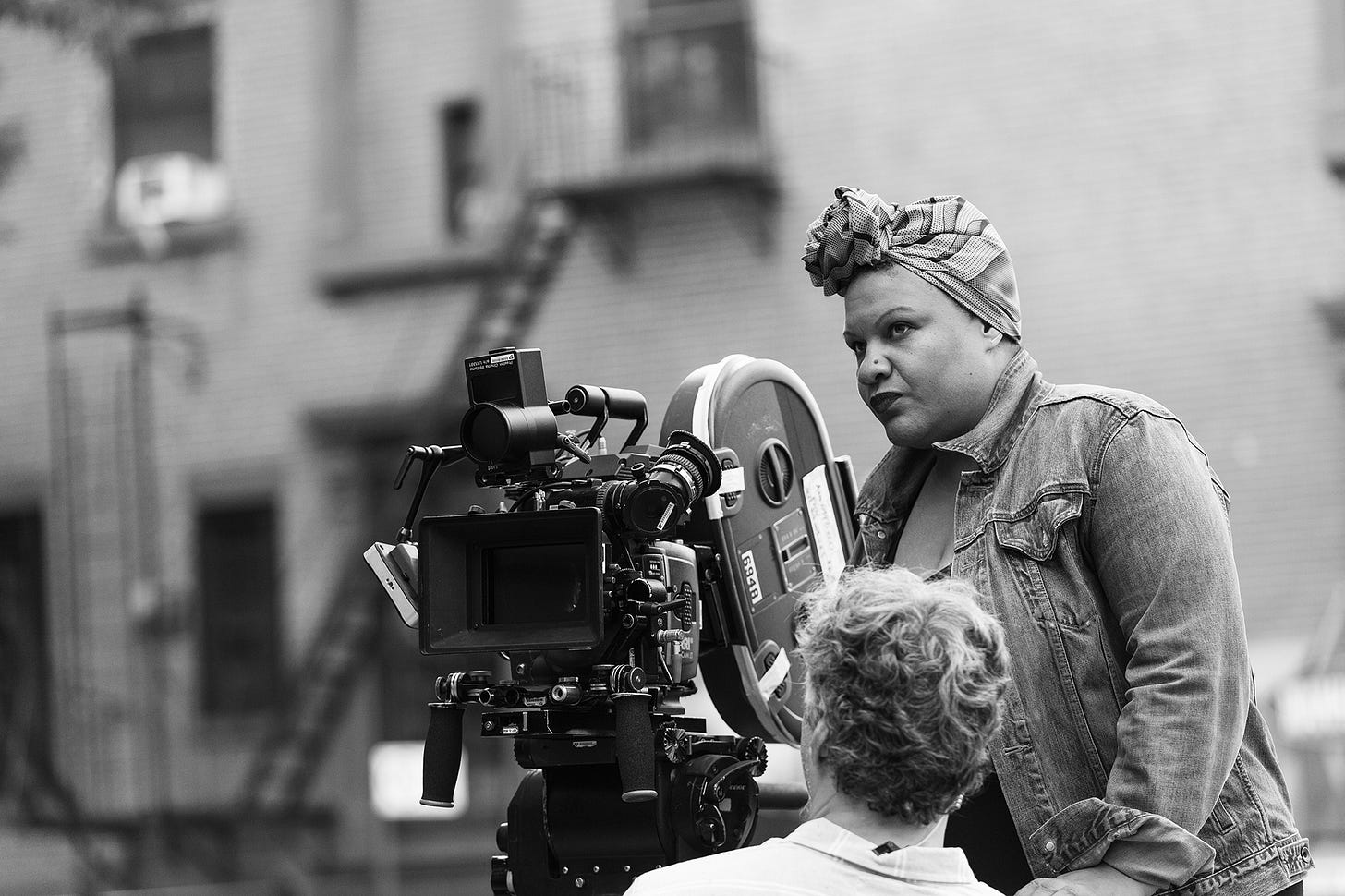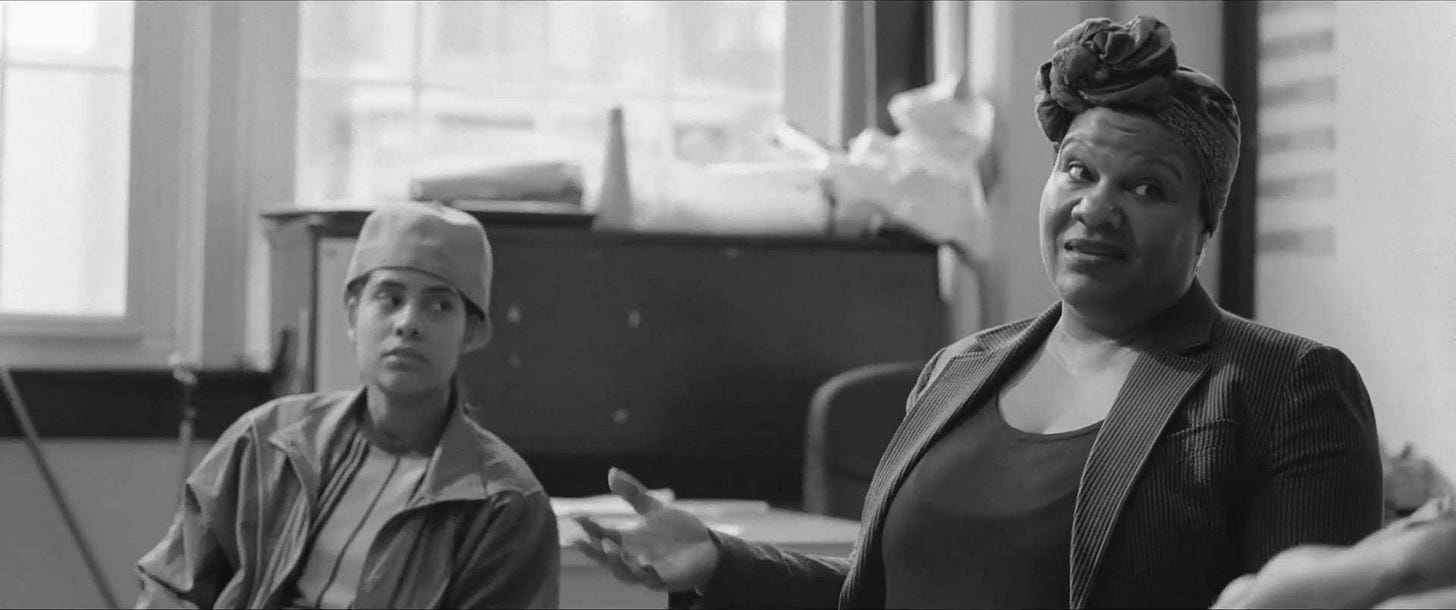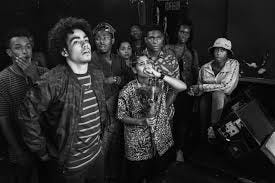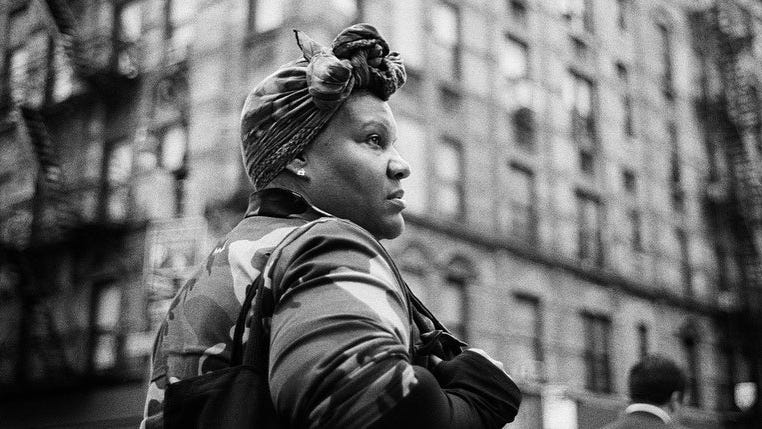The 40 Year Old Version
And Jailhouse Rappin'
Well gee, thanks, Netflix, for burying another promising female filmmaker.
Netflix purchased “The 40 Year Old Version” in 2020 after a rousing Sundance reception. Within the midst of a lethal pandemic, they quietly distributed the film onto their platform later that year. And writer/director/star Radha Blank benefitted from that heat by… what? I haven’t seen this singular talent anywhere. She worked her way up in the industry, penning plays and soldiering on in TV, whether the show be big (“Empire”) or not-so-much (“The Backyardigans”!).
“The 40 Year Old Version” was a multimedia experiment in which she showed off her lyrical flow as Radhamusprime on stage before she finally crafted it into a prize-winning film. And Netflix did the Netflix thing, letting the movie vanish into the algorithm while simultaneously talking viewers into watching that one canceled basic cable show that was popular for years even though you know no one that watched it. Though she appears to be active on social media, Blank has had no notable credits whatsoever since the movie debuted. This woman is barely still in her forties! Right wing racists keep telling me DEI is everywhere, but I guess no one told Ms. Blank.
The movie that remains is a black-and-white autobiographical tale of a striving NYCer – I was one of these once upon a time, so obviously this scratches an itch for me. Blank, playing a version of herself, is stuck in a middle-age rut, a playwright lacking success or direction. She’s also, of course, navigating her Blackness. When she speaks up in a playwriting class about her craft, the mostly Black students attack her for a lack of authenticity (which they line up next to her lack of mainstream success). In various scenes (and a few fantasy sequences) she asks herself how Black her art will let her be.
In a moment of self-doubt, she grabs a pen and paper to write rap music, and at first, it is something of a cry for help. She is not trying to explore her art, but merely delve into the comfort food of her youth as a school m.c., trying to locate a safe space within a world of professional (and romantic) rejection. But soon, she starts to feel free within the beats. Radhamusprime is born, and she finds herself writing not just a rhyme or two, but entire songs. Soon, open mics are beckoning.
The question is loaded, however: why? Why is she engaging in hip hop after years spent as a playwright? Is it a retreat, and if so, why would it be considered a retreat? And what to say about her participating in an artform that has not been hospitable to women her age (and, in many cases, women overall)? She soon finds herself wrestling with what seems to be the racism and sexism embedded within the artform, which has successfully gatekept people from different backgrounds from rap. What, she finds herself asking, does a forty year old woman have to say within hip hop?
She also discovers what people my age have come to find about themselves: hip hop is a young man’s game. Because she decides to do a couple shows and record a mixtape, she realizes she’s spending time with much younger men, and pretty much exclusively men. And because young men dominate hip hop, as a middle aged woman she has to contort the art form to express what she needs. She is GROWN. No need for drama, no time for kids’ games. Or maybe, as she grows close to a producer, she wants to find time for drama?
“The 40 Year Old Version” is a movie for those who are still a part of the hustle long after they are “supposed” to be. That would include people trying to restart their life, like myself. Emerging from prison was not unlike being young again, and not in the fun way. Having to chase public transportation, having to prove yourself, having to show people you’re capable. Revealing that your old body is now going to be expected to learn new things. Being reborn and finding your voice, as Blank triumphantly does, can be exciting. But it’s also a reminder that you’re not anticipating some bright future. You’re trying to make the remaining years worthwhile.
I have never tried to be a rapper, I don’t have a lot of interest in the attempt. But when I was down, it seemed like everyone wanted to be a jailhouse m.c. Some of them were talented, but largely, no one I met had an original voice, no one was trying to stand out from the pack. For many of them, it was about the idea that something worked for someone else and therefore it had to work for them, whether it be a style or a message. Funny thing was, I met a few guys who were, commercially, semi-successful by the time they were arrested. But only a few used those countless hours in prison to really refine their skills, learn new words, and write, write, write. There were a few abortive talent shows in prison, but they were almost entirely rappers, and many were just sampling the material of others.
An unusual touch involved the access to phones in prison. Because of this technology, I encountered many of these rappers actively filming their own crude rap videos, and then putting them online, presumably on social networks. For some reason, a large percentage of these videos were filmed in the bathrooms, where many men gathered due to a lack of other options. I’m certain there’s a video circulating somewhere (TikTok?) of someone spitting rhymes in a prison mens’ room, and there I am in the background, emerging from a stall, waving my hand to clear the air and clutching my personal roll of toilet paper.






I will be checking this out- thanks for the review!